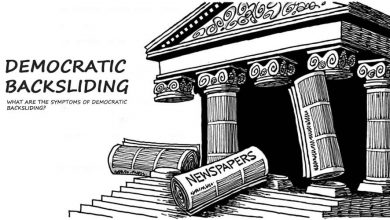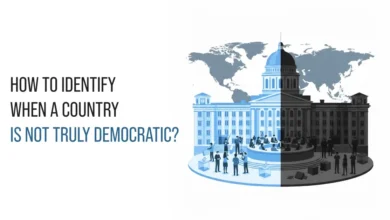Participatory Governance & its Theories with Criticisms
From the good governance indicators, you can get the concept of participatory governance. In this article, we’ll define participatory governance and analyze the theories on participatory governance with criticisms. Before going to the main topic, we have to understand what participation is?
Participation:
Participation is one kind of process in which stakeholders or participants are influenced and shared control over development initiatives, decisions, and affected resources.
Why Participation?
When arises the question of why participation? The answers are simple. Such as:-
- Equal distribution of resources to mass people
- Decentralized the power of authority
- Reduced the autocratic power of government in decision making
- Poverty reduction
- Establish a clear channel for community
- Building local capacity to interact with authorities and other stakeholders.
Participatory Governance (PG):
Participatory governance refers to a synergy of power between the actors of state and society. Participatory governance refers to the public’s collaborative efforts to provide high-quality programs and services. Participatory governance can make:-
-
- better citizens
- better decisions &
- better government.
Links: Difference Between DA and TPA
Why Participatory Governance?
Participatory governance is essential to implement good governance in a state or country. Because:-
- To ensure the transformation of power.
- To ensure the involvement of civil people in the government.
- To ensure a participatory budget.
- Participatory governance is needed to do participatory planning.
- Participatory governance is needed to ensure equal distribution of resources.
Where does Participatory Governance Being?
State or Civil Society? Civil Society, as a site for governance, facilitates public deliberation and problem solving by various actors (NGOs to social movements). People are invited to participate by various authorities, be they government supranational agencies or non-government organizations. State initiates participation (Participatory budgeting & local level planning). A strong state and a strong civil society are the needs to develop participatory democracy.
Theories of Participatory Governance (PG):
Three theories are influenced by participatory governance. Such as:-
- Liberal Democracy
- Neoliberalism
- New Institutionalist Communitarianism
1. Liberal Democracy:
Liberal Democracy is a political ideology and a form of government. Here, representative democracy drives under the principles of classical liberalism what is the branch of liberalism. The characteristics of liberal democracy are:-
- Fair, free and competitive elections
- Separation of power
- Protection of the rights and freedoms of the individual.
Criticism of Liberal Democracy:
In a liberal democracy, representative democracy cannot work freely rather than be limited by constitutional law.
2. Neoliberalism:
Neoliberalism is a liberal economic ideology and a form of government where the government transfers economic factors from the public sector to the private sector under the principles of neoclassical economics.
Criticism of Neoliberalism:
In neoliberalism, governmental economic issues have chanced to fall against private sectors.
3. New Institutionalist Communitarianism:
New Institutionalist Communitarianism or New Institutionalism or neo-institutionalism interactions the different institutions within society or civilization. How their dynamics, norms, rules define the behavior and act of individuals. It has come from the Old Institutionalism what is focused on state or government and their numerous law and practices which are practiced on citizens. New Institutionalist Communitarianism has three approaches. Such as:-
- Sociological institutionalism
- Historic institutionalism
- Rational choice.
Link: Difference Between Participatory and Bureaucratic Management
Criticism of New Institutionalist Communitarianism:
The New Institutionalist Communitarianism is the weakest when tries to explain the genesis and transformation of the institution.
| Theory | Origin | Ideology | Criticism |
|---|---|---|---|
| Liberal Democracy | Liberalism | Political | Limited by constitutional law and order |
| Neo-liberalism | Neo-classical Economics | Economic | Decreased economic issues of the public than the private sector |
| New Institutionalist Communitarianism | Old Institutionalism | Institution | Weakest in the genesis and transformation of the institution |
Here, we try to understand the basic concept of the topic. If you want to know more things, you can contact us.




Hi. I’m glad he found HigherStudy.org website, I really like it, the article is very useful and I shared it! Great success with this site!